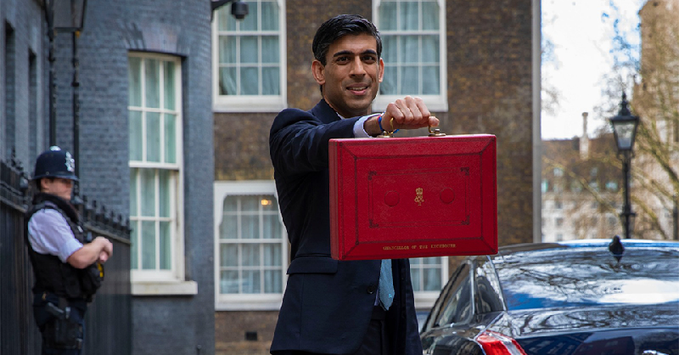28 eight days into his tenure, the Chancellor, Rishi Sunak, delivered his UK 2020 budget speech. As expected, he has pledged billions of pounds to help the NHS and business deal with the ongoing coronavirus fallout. Sunak has also announced a major infrastructural spending package while delivering funding for areas hit by flooding and several climate change-related projects. The government will have to borrow significant sums of money to meet all the commitments. But thanks to the Bank of England’s emergency interest rate cut this morning, it can do so comfortably.
UK 2020 budget – the main takeaways
Coronavirus Measures
Although the economic impact of the Covid 19-outbreak is unforeseeable, the government is providing substantial funding for the NHS and the business community. Five billion pounds will go to support the National Health Services and other public services dealing with the outbreak.
To support businesses facing an uncertain economic period, the government is making available additional funding while cutting rates and providing business loans. Small companies can avail of loans of up to 1.2 million pounds while also receiving refunds for up to 14 days of staff sick pay.
Leisure, retail, and hospitality businesses with a rateable value below £51,000 will now be exempt from rates. Local councils will get a share of a £500 million hardship fund to help them support the most vulnerable members of their communities.
Workers who self-isolate even if they’re asymptomatic are eligible for statutory sick pay while the self-employed are now eligible for Employment Support Allowance.
Infrastructural spending
The government is planning on spending £600 billion on roads, rail, housing, and broadband. It will create 6’000 additional places to house homeless people, spend £1 billion on removing unsafe cladding from high-rise council housing, £2.5 billion on fixing potholes, and £27 billion is now available for the construction of key roads and new motorways.
Colleges will receive £1.5 billion for refurbishments and new-builds.
Non-UK buyers will, from April 2021, have to pay a two-per cent stamp duty.
The Environment
The UK 2020 budget also provides funding for environmental projects, including £600 million for the protection of natural habitats. Red diesel subsidies will now only be available for rail operators and farmers.
In communities that have suffered major flood-damage in recent times, the government will spend £120 million on emergency relief and £250 million on flood resilience. Over the next five years, flood-related funding will increase to £5.2 billion.
The Chancellor also announced the introduction of a plastic tax from April 2022.
UK 2020 budget business-related spending
As part of the coronavirus package, the government will invest £1.4 billion into research at the Science Institute in Weybridge, Surrey.
To deliver broadband to remote areas of the UK, the government is making £5 billion available.
From December of this year, consumers will pay no VAT on books, newspapers, magazines and academic papers.
£900 million is available for research into space and electric vehicles, and nuclear fusion.
Finally, the Entrepreneur’s relief remains, but the lifetime allowance cap drops from £10 million to £1 million.
Wages, personal tax, pensions, alcohol, tobacco, and fuel
Not much has changed when it comes to personal taxation. Apart from raising the contribution threshold for National Insurance and making tampons VAT-free, this budget sees personal tax rates remain the same as before.
Tax on fuel and spirits remains frozen. Only tobacco products will rise in price.
The Reaction
In his speech, Jeremy Corbyn castigated the Tory government for a decade of austerity, saying that the spending wouldn’t reverse its devastation. Meanwhile, commentators and opposition parliamentarians are still examining the budget with a fine-tooth comb.
With the current economic uncertainty and a sluggish economy, some commentators have welcomed the budgetary stimulus, while others have warned that the UK may already be in recession due to the coronavirus.




